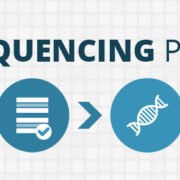Increasing Access to Genome Sequencing for Clinical Diagnostics
As genome sequencing continues to decrease in price and increase in demand, the desire for many clinical organizations to leverage genome sequencing as a clinical diagnostic means continues to get traction. In a recent change, the California State Legislature approved a pilot budget and project to research the benefits of leveraging genome sequencing for disease diagnosis.
For many with rare diseases, the outcome is a large step forward in moving towards a more precision medicine approach. With todays approach, clinicians are typically only referencing phenotypic data along with some lab tests. This provides a limited snapshot view of the patient, leaving critical germline genetic information out of the picture.
By including genome sequencing, clinicians get options to either sequence the gernmline genome for potential disease inheritance as well as the exome for a view into the current state of the patient. Having this information at hand allows the clinicians to analyze and build correlations between the two, creating data driven medicine at a holistic view.
Historically reserved for research, genome sequencing continues to break into being more widely accepted and approved by the FDA as well. Precision for Medicine recently announced their FoundationOne CDx release – a broad companion diagnostic review. After extensive review, Foundation received their FDA stamp of approval, showing a change in the tides favoring more genome sequencing being used for clinical diagnosis. Additionally, Illumina has continued to double down on clinical diagnostics with FDA approved Cystic Fibrosis panel and RAS panel for colorectal cancer.
Although there’s been recent positive movement, the progress has been relatively slow due to significant regulatory hurdles to gain FDA approval. With only a couple kits being FDA approved a year, there’s much progress to be made across the wide variety of diseases. For now, clinical research continues to make significant strides and will lead the way with large scale testing of genome sequencing driven research, such as HLA Typing.










Leave a Reply
Want to join the discussion?Feel free to contribute!